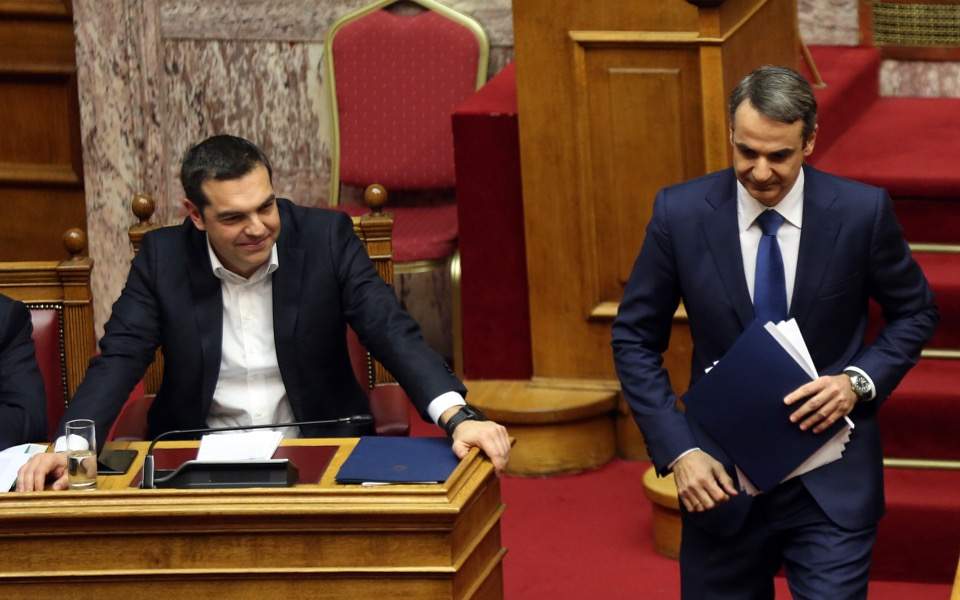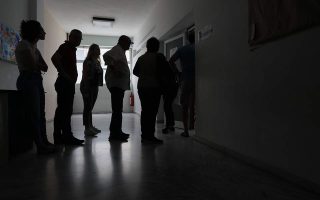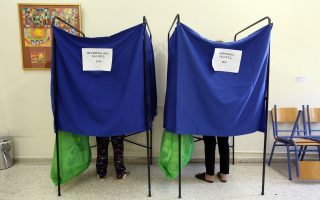The ‘keys’ to a New Democracy majority

After scoring a significant lead in last month’s European Parliament elections against ruling SYRIZA and seeing that advantage maintained in public opinion polls two weeks before Greeks head to the polls for the general election, opposition New Democracy is relying on two key factors that will determine whether or not it will win by an outright majority: turnout and the fate of three parties that will be battling to reach the 3 percent threshold needed to make it into the 300-seat Parliament – neo-Nazi Golden Dawn, Kyriakos Velopoulos’ far-right nationalist Greek Solution, and former finance minister Yanis Varoufakis’ left-wing MeRA25.
Voter abstention has always influenced the electoral outcome, as it inadvertently bolsters the leading party and, basically, the party that has managed to rally its voter base more effectively. However, it is hard to know who and how many will abstain and, therefore, their impact on the election. One reason is that we are in the middle of the summer holiday season and the other is that after the outcome of the recent European and local elections, many voters believe that a winner has already been determined.
Party officials believe that the air of victory surrounding New Democracy will compel voters to go and cast their ballots, as will the party leader’s persistent reminder of the need for a resounding win that will allow the center-right party to govern alone. Sources have revealed that, in the days up to July 7, Kyriakos Mitsotakis will be placing particular emphasis on the dangers of a win without a strong majority. He is expected to tell Greeks that failure to form a government would throw the country into turmoil and also mean that the next elections would be conducted under a system of simple proportional representation.
In contrast, Prime Minister Alexis Tsipras and SYRIZA will have a lot more trouble rallying the party base, especially if the final public opinion polls before July 7 show the ruling leftists losing more ground to New Democracy. Party officials are reportedly banking on the possibility that abstainers will include a large number of older voters – among whom New Democracy enjoys a clear advantage over SYRIZA – as a result of the summer holidays.
It must be noted that SYRIZA is also relying on a “sub-category” of abstainers, and specifically the approximately 600,000 people who had voted for the leftist party in the January 2015 elections but did not turn up for last month’s European polls. Indeed, sources have suggested that the party has been carrying out research into this particular group in order to shape its strategy accordingly. However, the challenge lies in the fact that it is a diverse group and therefore very hard to reach out to.
Apart from the impact of abstention on the difference between New Democracy and SYRIZA, another crucial element in the main opposition’s ability to form a government will be which of the three smaller parties mentioned above will make it into Parliament. If all three get through, an outright majority will be that much harder for ND to clinch. If one or none succeeds, the conservatives will be able to reach 151 MPs in the 300-seat House with greater ease.
It is impossible right now to know with any degree of certainty how Golden Dawn, Greek Solution and MeRA25 will ultimately fare, as pollsters warn that even the apparent grassroots voters who supported them in the European elections consist of diverse and changeable groups.
The debate and Turkey
It had been expected that a televised debate scheduled for July 1 might have had a significant impact on what has so far been a rather uneventful pre-election period. However, it emerged Monday that due to a variety of reasons – objections by the opposition parties to a string of demands from SYRIZA about how it should be conducted, as well as objections to the participation of Velopoulos, not to mention the fact that Tsipras is scheduled to take part in an extraordinary European Union summit on the previous day – the debate will not be going ahead after all.
In the meantime, we cannot rule out the possibility of Tsipras attempting to “dramatize” the situation with Turkey as he did earlier this month when he called an emergency meeting of Greece’s Government Council for Foreign Affairs and Defense (KYSEA). That said, it should also be noted that despite some advice to the contrary, the prime minister hastened to lower the dramatic tone of the discussion about Turkey, even though Cyprus President Nicos Anastasiadis’ reference to a “second invasion” of Cypriot territory provides all the elements for cultivating a climate of national crisis.





